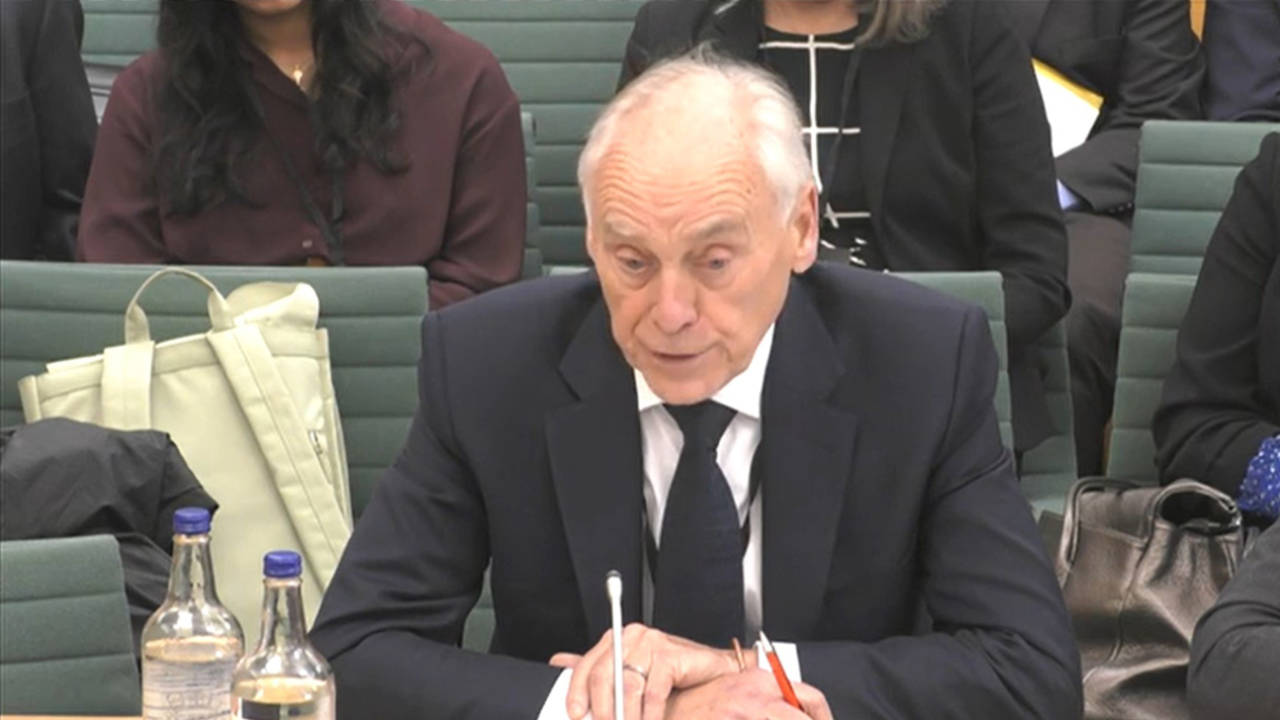Club chairman signals intention to convert ownership model from members club
Colin Graves speaking to the Digital, Culture, Media and Sport Select Committee earlier this year • House of Commons/PA Images via Getty Images
Colin Graves has given the strongest indication yet that Yorkshire’s traditional member-owned status is no longer viable given their dire financial situation, saying that a process of demutualisation – the conversion of the club to a private structure model, thereby unlocking the potential for outside investment – “appears at this point essential for the club’s future”.
Graves, who was re-elected as Yorkshire’s chairman for a second stint in February, helped to save the club from bankruptcy during his original tenure in 2002. As a consequence of that intervention, his family trust – which is managed by independent trustees – is still owed approximately £15 million, or almost three-quarters of the £20million of “long-term borrowing” that he claims is required to keep the club afloat.
Now, in a letter circulated to members on Monday, Graves has warned that Yorkshire will be “fighting for its survival” during 2024 unless they take “swift and decisive action”.
According to their latest financial results, the club recorded a trading loss of £2.7 million in 2023, including £1.9 million of “exceptional” expenses, most of which relate to the legal costs and settlements incurred during the racism scandal that had previously caused a raft of high-profile sponsors to sever ties with the club.
The picture is all the more concerning for Yorkshire given that they hosted a lucrative Ashes Test in 2023. Their recent accumulated losses now stand at more than £9 million, and that picture is likely to worsen this year given that Headingley has no men’s Test scheduled for 2024, nor in 2027 or 2028, which Graves warned in his letter would amount to “double fallow” years.
Despite stating in the run-up to his election as chairman that he had no plans to demutualise the club, Graves subsequently warned that “nothing can be ruled out in the future”.
The prospect of private investment within English cricket is already on the table via the ECB’s discussions over the future of the Hundred. Headingley is the host venue for Northern Superchargers, and stands to be awarded a 51% equity share in the team, while Graves’ consortium at Yorkshire includes a number of the tournament’s original architects, including Sanjay Patel, the former tournament director.
“As discussed at our AGM in April, the club’s current status as a mutual society continues to prove a blocker to attracting private financing,” Graves wrote in his letter. “A demutualisation – thereby converting the club to a private structure, which unlocks potential private investment – appears at this point essential for the club’s future.
“My firm intention is that members’ current rights are protected and that a demutualisation would represent no change to their current interaction with YCCC,” he added. “The club would be better structured to be self-sustaining, still in existence, and to capture maximum value for YCCC from any processes such as the Hundred.”
Any move to demutualise the county – a process which has already been undertaken at Hampshire, Northamptonshire and Durham – would need the involvement of at least 50% of Yorkshire’s 6,000 members with voting rights, and a 75% majority therein.


